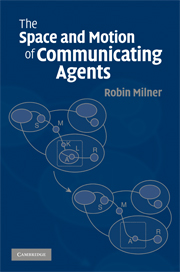
HEFCE has published preliminary results of the RAE.
These comprise tabulated overall quality profiles per unit of assessment (UoA) and per institution. Each quality profile presents the proportions, rounded to 5 per cent, of research activity in each submission judged to have met each of the quality levels from 4* to unclassified. Alongside the quality profile for each submission, HEFCE publish the full-time equivalent (FTE) number of Category A staff included in the submission.
The highest, 4* grade is awarded for work that is world-leading; 3* is for internationally excellent, and 2* for internationally recognised research.
- 4*
- Quality that is world-leading in terms of originality, significance, and rigour
- 3*
- Quality that is internationally excellent in terms of originality, significance, and rigour but which nonetheless falls short of the highest standards of excellence
- 2*
- Quality that is recognised internationally in terms of originality, significance, and rigour
- 1*
- Quality that is recognised nationally in terms of originiality, significance, and rigour
- U/C
- Quality that falls below the standard of nationally recognised work, or which does not meet the published definition of research for the purposes of this assessment
Taking the profile percentages of the FTE staff number gives a research volume profile for each submission.
H-0167 University of Edinburgh
UoA 23 Computer Science and Informatics
- 4* volume
- 36.4875
- 3* volume
- 52.125
- 2* volume
- 15.6375
- total:
- 104.25 FTE
These results confirm that the University of Edinburgh is, once again, the strongest in the UK for research in Informatics and Computer Science.
Informatics at Edinburgh delivers more world-leading (4*) research than anyone else — 69% more than our nearest competitor.
We contribute 10% of the UK's world-leading research in this UoA.
We deliver more internationally-excellent (3*) or world-leading (4*) research than anyone else — 44% more than our nearest competitor. Edinburgh contributes more research that is at least internationally excellent than Oxbridge.
Overall, ours is the largest research grouping in the UK — again, 44% larger than our nearest competitor.
All of our research is internationally recognised, or better (2*, 3* or 4*) — and we submitted every eligible member of staff.
Ranking
The use of grade profiles means that there is no single ranking as a result of this RAE.
The detailed formulae for research funding based on the RAE will not be announced by funding councils for several months. However, future research funding is expected to be based on a weighted sum over the RAE volume profile.
For any score given as a weighted sum S = α 4* + β 3* + γ 2* + δ 1*, where &alpha > 0 and α ≥ β ≥ γ ≥ δ ≥ 0, Edinburgh scores top in the UK.
Progress

Our volume of world-leading and internationally excellent research (88.6 FTE) exceeds our entire submission to RAE 2001 (80.2 FTE). In addition, we have recently made half a dozen outstanding new appointments, not included in this assessment, that further increase our research excellence and capacity. We have also recently improved our environment by moving into the Informatics Forum — acclaimed as the best building in Scotland. This building, designed for interaction, brings an eclectic multidisciplinary collection of over 500 researchers in Informatics and Computer Science together, under one roof.
Collaboration with Linguistics
Edinburgh has the UK's strongest research group in Linguistics, with more world-class (4*) research in Linguistics (10.8 FTE) than any two other submissions combined. Through the Human Communication Research Centre (HCRC) and the Centre for Speech Technology Research (CSTR), we work closely with these colleagues in the areas of Speech and Language Processing, Computational Linguistics and Cognitive Science.
Informatics and Computer Science in Scotland
The Scottish Informatics and Computer Science Alliance (SICSA) brings together internationally excellent research from across Scotland, to double the University of Edinburgh's 3* + 4* volume. This critical mass of excellence makes Scotland a match for any leading centre of Informatics and Computer Science, worldwide.
SICSA is actively recruiting, and plans to complete appointments to some 30 new posts by the end of 2010. Our policy is to recruit internationally, to make outstanding appointments that raise our research quality, and further strengthen Scotland's profile in Informatics and Computer Science.
Informatics and Computer Science across the UK
Eighty-one submissions were made to UoA 23. The top ten (by 4* volume) account for over 50% of the UK's world-leading research in this UoA.
Manchester is our nearest competitor. Cambridge, Oxford, University College, and Imperial College — almost indistinguishable from one another — come next, followed by Southampton; Bristol, Birmingham and Nottingham complete the top ten.
The Graph
The abscissa is a parameter β
The ordinate (plotted on log scale) is V = 4* + β 3*
The point is that whatever reasonable combination of 4* and 3* volume you choose to take, Edinburgh comes out tops.
The use of a log scale makes it easier to compare relative sizes. For example, the gap between Cambridge and Manchester at the right-hand end of the graph signifies that Manchester has roughly 50% more 3* + 4* volume than Cambridge. A slightly larger gap at the left-hand end between Manchester and Edinburgh signifies that Edinburgh has more than 50% more 4* volume than Manchester.
Labels: 2008, computer science, computing, edinburgh, informatics, linguistics, RAE, Scotland, sicsa, uk





